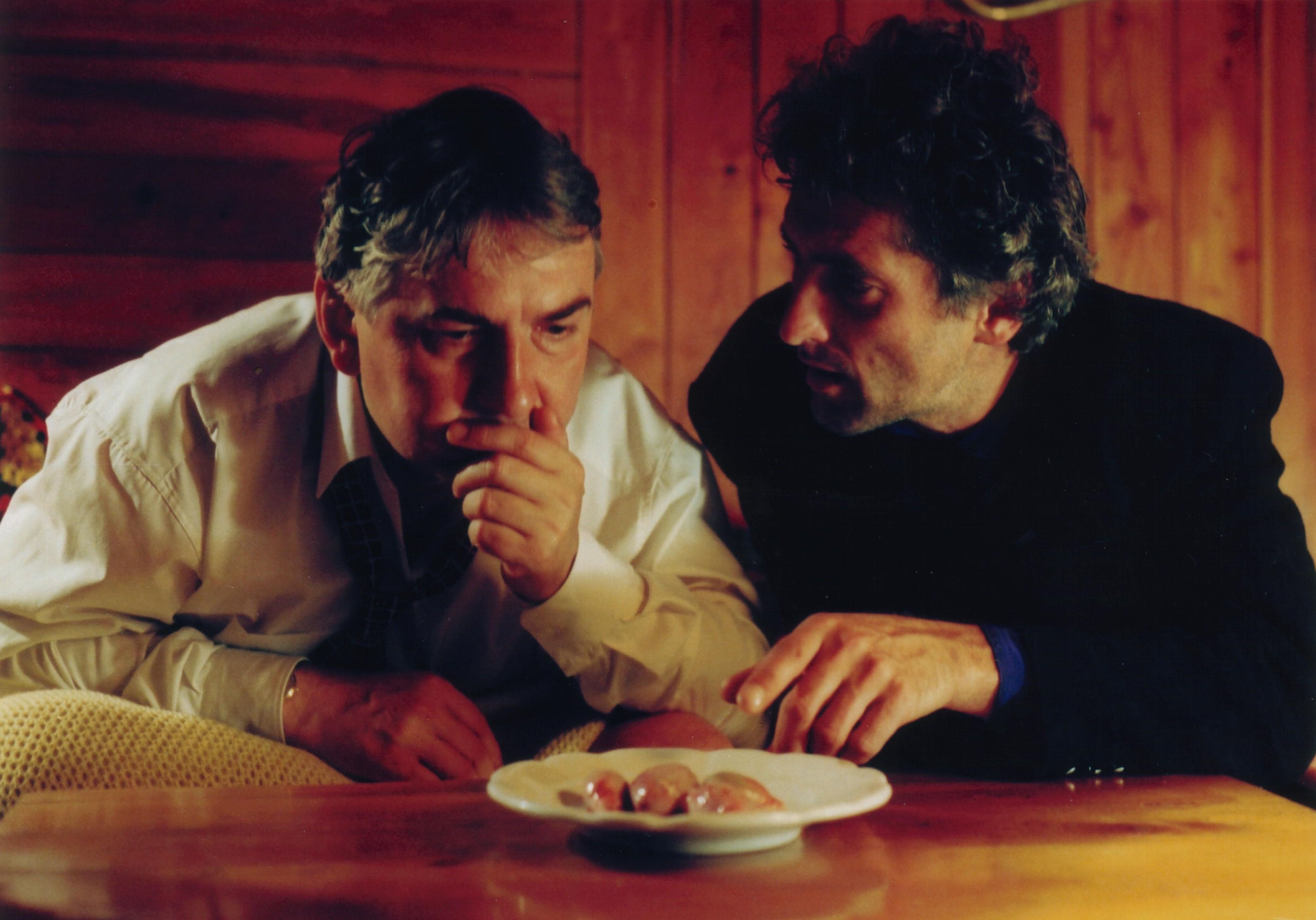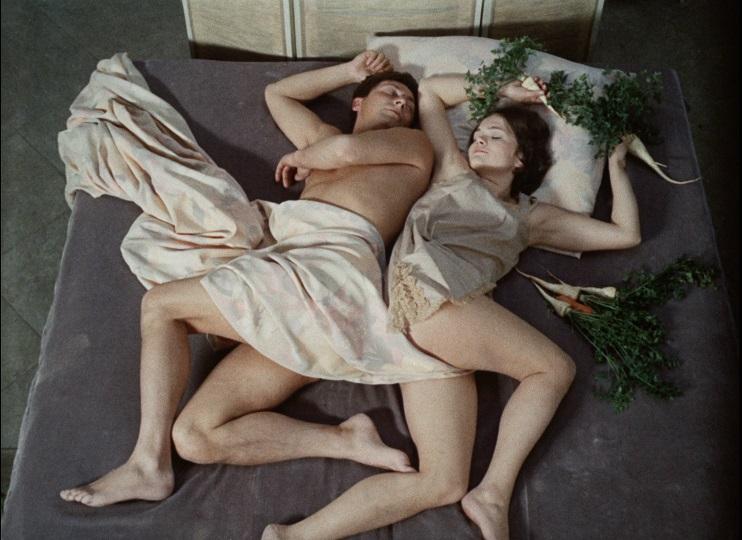“Iconoclast” is the word used in one of the booklet essays accompanying Second Run’s rerelease of two films by the great Czech director Věra Chytilová (1929-2014) to describe her work. Other terms that have appeared over the years include: feminist, formalist, “overheated kettle that you can’t turn down”, and “first lady of the Czech New Wave”. Not all of those are of similar value, but nevertheless catch an element of her diversity.
Chytilová is best known for her early film Daisies, from 1966. Traps (Pasti, pasti, pasticky, 1998), from the re-commencement of her film career in post-Communist Czechoslovakia, and Fruit of Paradise (Ovoce stromů rajských jíme, 1969), the last film she made in the Sixties, that euphoric decade that saw the unprecedented blossoming of her country’s film industry, give a welcome chance to reassess her broader career.
Daisies hardly depicts sympathetic characters, with the director’s vehemence directed at the shortcomings of the Communist regime of the time. In Traps (****) the focus of her attack is the lack of moral values in the decade that followed her homeland’s independence. Cynicism, preoccupation with material values, and spiritual emptiness characterise the world she depicts, in which the ill-used Lenka (Zuzana Stivínová) retaliates against the brutal intrusion of a boorish, mercantile and very male-dominated society (the most egregious such characters, played by Miroslav Donutil and Tomás Hanák, pictured below right).
 It’s a stark film, the opening scenes of which have a winclngly unsettling effect that merit a spoiler alert: suffice to say it’s tightly structured, themes effectively linked. As black comedies go, it’s bleak, though you can’t help thinking that Chytilová somehow couldn’t but relish that darkness: its recurring, ironically classical score is set against scenes of rutting, both among animals and – much more laconically – people. (If Chytilová has a counterpart in her ex-Soviet cinematic generation, it’s surely Ukraine’s Kira Muratova, and there’s an almost Gogolian satire to Traps, which sees its only truth-speaking character taken away at the end by doctors, and a closing sense that suggests the self-serving hypocrisy is set to continue remorselessly.) Chytilová passes unsparing judgment on a society emerging from one sort of tyranny but lacking any clear sense of where it’s going. It's cruelly funny nonetheless, and a most uncomfortable watch.
It’s a stark film, the opening scenes of which have a winclngly unsettling effect that merit a spoiler alert: suffice to say it’s tightly structured, themes effectively linked. As black comedies go, it’s bleak, though you can’t help thinking that Chytilová somehow couldn’t but relish that darkness: its recurring, ironically classical score is set against scenes of rutting, both among animals and – much more laconically – people. (If Chytilová has a counterpart in her ex-Soviet cinematic generation, it’s surely Ukraine’s Kira Muratova, and there’s an almost Gogolian satire to Traps, which sees its only truth-speaking character taken away at the end by doctors, and a closing sense that suggests the self-serving hypocrisy is set to continue remorselessly.) Chytilová passes unsparing judgment on a society emerging from one sort of tyranny but lacking any clear sense of where it’s going. It's cruelly funny nonetheless, and a most uncomfortable watch.
By contrast, Fruit of Paradise (***), coloured by Chytilová’s characteristic surrealism, transgresses formally, more so perhaps than any other film that came out of the Czech New Wave, that generation of filmmakers who emerged from Prague’s FAMU film school in the 1960s (this release also includes the director’s 1961 student film, Ceiling, from there).
It’s a highly stylised work, saturated in colour and ebulliently scored (by composer Zdeněk Liška), that loosely puts the Adam and Eve story (virtual protagonists, main picture), treated in a phantasmogorical preqel, into a contemporary, allusively sketched faux pastorale environment. Suggestions of loose narrative are there somewhere, but more than anything this is a film of aesthetic obsession, occasionally even caprice. Chytilová achieves some glorious, compelling dramatic gestures – unfettered, you suspect, by the demands of her producers at the time, and certainly inimitable to the world of the post-1968 society in which she struggled to continue her career.
Both these releases have Second Run’s customary booklet essays that give valuable context, but even the one from Peter Hames (the label’s longterm collaborator on its classic Czech cinema rediscoveries) on Fruit… can only elucidate aspects of Chytilová’s film: it’s a work that really has to be seen for itself.













Add comment